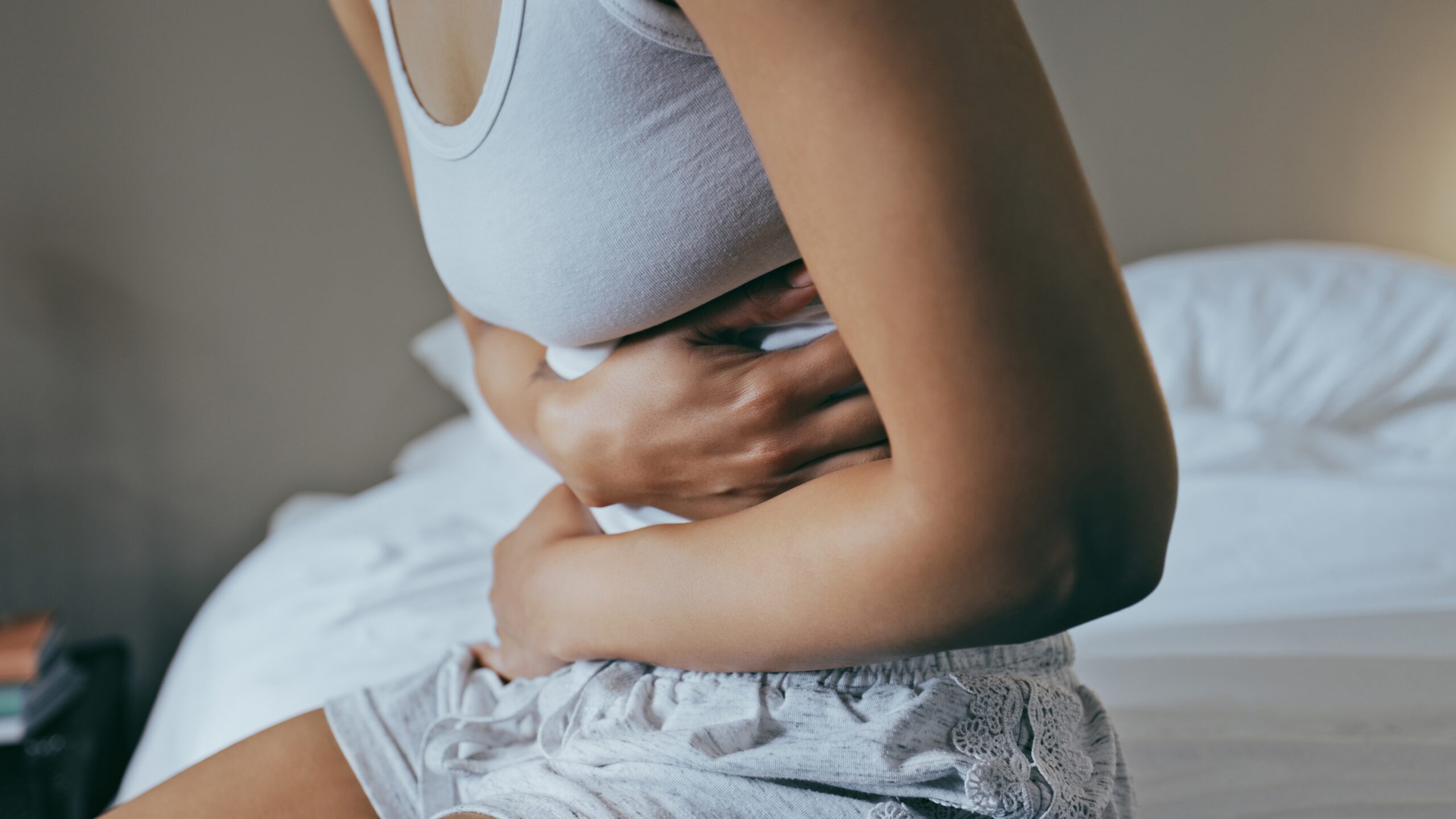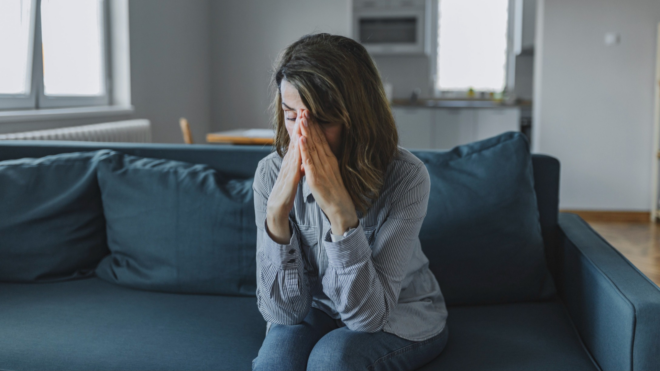
A woman is hoping to spread awareness about a rare condition after a diagnosis led her to find out that she's allergic to her menstrual cycle. Twenty-eight-year-old Georgina Jelley from London received an IUD (intrauterine device) in April 2024. After a few weeks, she noticed she began to get rashes, itchy and burning eyes, and headaches. Believing she was having an allergic reaction, doctors prescribed her oral steroids and antihistamines. Although her symptoms disappeared for a few days, they soon came back even more severe.
More from CafeMom: Dozens of Men Tried a Period Pain Simulator on Camera & Their Reactions Are Beyond Extreme
She was told they were symptoms of eczema.
Georgina's headaches worsened and her vision became affected, which led her to be sent in for an MRI. After that came back normal, doctors told her that her symptoms resembled those of eczema. "But I just knew that it wasn't," she recalled to SWNS via the New York Post. "I felt really fobbed off, the doctors kept telling me it was just eczema and tried to give me topical steroids to treat it. But I just knew that it wasn't.”
She soon made the correlation that her symptoms arose whenever she had her period.
"My final reaction was three weeks later, and when I started to experience the allergic reaction, I moaned to my partner that it was also my time of the month, which added to what I was going through,” she said. “He then had a light bulb moment and realized that I'd been on my period every time I had the reactions."
More from CafeMom: Video Makes People Realize They've Been Using Period Pads Wrong for Years
Georgina did some research — and found answers.
Upon doing some research, Georgina came to believe she had a condition called progesterone hypersensitivity, so she scheduled an appointment with her doctor, who provided an official diagnosis. According to Verywell Health, progesterone hypersensitivity "is a condition that triggers an allergic reaction in the skin ahead of your period beginning and then improves once it's over. This reaction is caused by a rise in progesterone that naturally occurs during the menstrual cycle."
The rare condition has many symptoms.
Symptoms of progesterone hypersensitivity, or PH, include rashes, hives, swelling, redness, and itching of the skin. In severe cases, the condition can even cause a cough, loss of breath, or anaphylaxis. Options for treatment range from corticosteroids and antihistamines to taking medication that lower progesterone levels or block production of progesterone altogether.
She was surprised by her symptoms.
"It was awful. My eyes were so red – it looked like I was wearing an eye mask and it affected my vision. It was so painful and I was so worried," Georgina told SWNS. "It was shocking to think I'm actually allergic to my own periods."
Georgina is taking injections to stop the allergic reactions.
Since being switched to Depo-Provera contraceptive injections to stop her periods, Georgina hasn’t had an allergic reaction.
"I feel so much better since having my coil removed. It was so painful and horrible, and we had no idea why it was happening,” she shared with SWNS. "I work full time and have a daughter to look after, it was a lot to go through. I spent nearly $520 on creams to try and treat the problem. I was desperate to make it stop.”
The woman added that she hopes to bring more attention to the condition. "I want to raise awareness of progesterone hypersensitivity,” she said. “I knew it wasn't just eczema — you know your body and you should always listen to your gut."




